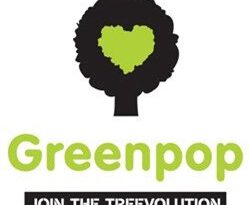KZN is flexing its real estate muscles
The coastal province is experiencing good month-on-month real estate growth.
BetterBond statistics reveal that bond application numbers have shown year-on-year increases of up to 16 percent in each of the first four months of 2019 and that there have also been large increases in the value of the bonds approved. All good, but it is KwaZulu-Natal that stands out particularly, with BetterBond research showing a 14 percent increase in the number of transfers registered in the province in the six months to end March compared to the same period in 2018, and a 22 percent increase in the value of transfers registered.
KZN thus profiles somewhat as an awakening giant. Our own statistics reveal that the median asking price in the region has realised steady but slow growth over the past few months. This indicates rising demand, especially at the top end of the market as the traditional trend of semigration to the Western Cape wanes and KZN gains ground as a relocation and/or second home destination.
The reasons are numerous, including: the development of luxury, and super-luxury, estates along the north coast; proximity of an international airport; Joburg salary depression; and value for money. When viewed as a whole, these factors may translate into simple economics but the one over-riding catalyst appears to be the King Shaka airport, and its surrounding business developments.
Berry Everitt, CEO of the Chas Everitt International property group, says an increasing number of SA executives and professionals are becoming super-commuters, those that travel weekly by air, between their job and home that are in different provinces. “For many the rationale for this lifestyle is to ensure that while they are working, their family lives in a safer and less stressful environment, usually a secure gated estate and with schools sited close by.
“This has been a huge driver of recent home demand in luxury estates at the coast, particularly the KZN North Coast, where the proximity of the King Shaka International Airport makes it very convenient to take a one-hour flight to Johannesburg,” says Everitt. And let’s not forget the price of air tickets, with the cheaper option obviously being travel to/from Durban over Cape Town, with sometimes up to R800 difference when factoring in peak travel times.
According to RE/MAX two of the top five positions for the most searched suburbs on its website are KZN’s La Lucia and Durban North. Re/MAX’s Panache broker/owner operating in those two areas, Grant Gavin, says that the North Coast is a hotspot for future growth in the province. “And not just around Umhlanga and Umdloti, but further north too. With strong demand for North Coast living likely to stimulate longer term price appreciation, it would be wise to get in early before house prices in these areas begin to climb,” he says.
Manuella Botha, a Chas Everitt International area specialist for Zimbali, Simbithi and other top estates near Ballito, says that before the airport was relocated, some 70% of homes in these estates were foreign-owned, and the remainder used as holiday homes by affluent South Africans. “Now however, about 80% of homes are permanently occupied, mostly by SA owners, and only 20% used as holiday homes.”
The province is also attracting more than its fair share of buyers from the rest of Africa, who have business ties with Asian countries and even Mauritius and Australia. With close living to the Port of Durban, and access to an international airport, why shouldn’t they equally enjoy the climate and coastal lifestyle that the region is renowned for?
Salaries also have to be factored into the economic scenario. Deutsche Bank claims that Johannesburg salaries are lagging behind those of Cape Town, which with its higher property prices serves only to highlight KZN’s North Coast as a far more affordable destination for those seeking to relocate from Johannesburg.
New KZN coastal precincts are being readily snapped up: the Sibaya Coastal Precinct, which will ultimately provide 12,000 residential dwellings, achieved R3.2 billion in sales in 18 months; the R15-billion Blythedale Coastal Resort has almost sold out its Phase 1 and 2 stock; and Lush, a condo-style development within the Elaleni Coastal Forest Estate, has opened sales for Phase 2 following the successful conclusion of Phase 1 sales.
Estates such as these are also attracting a multitude of entrepreneurs in the form of small businesses and home operations to cater to the lifestyle choices of residents. As a result, the coastal areas are seemingly no longer the sleepy little towns of old, but buzzing with new energies and stylised eco-living.
Find homes for sale in KZN here.
Source: bizcommunity.com


